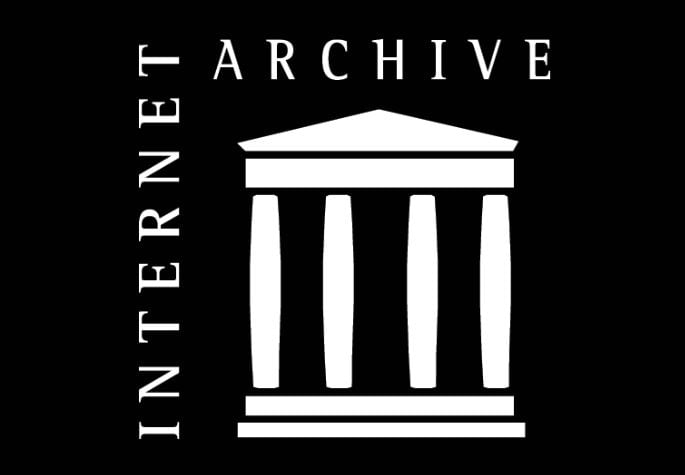 As the Internet Archive continues to deal with an adverse ruling in a copyright infringement lawsuit filed by the world’s largest publishing companies, late Friday some of the world’s largest record labels launched similar legal action in the United States.
As the Internet Archive continues to deal with an adverse ruling in a copyright infringement lawsuit filed by the world’s largest publishing companies, late Friday some of the world’s largest record labels launched similar legal action in the United States.
Filed in Manhattan federal court, the complaint lists UMG Recordings, Capitol Records, Concord Bicycle Assets, CMGI Recorded Music Assets, Sony Music and Arista Music as plaintiffs, with Internet Archive (IA), founder Brewster Kahle, Kahle/Austin Foundation, George Blood and George Blood L.P named as defendants.
Pre-1972 78rpm Records by Iconic Artists, All Deceased
The plaintiffs’ complaint focuses on the Internet Archive’s ‘Great 78 Project’ which aims to preserve, research and discover 78rpm records produced between 1898 and the 1950s.
“While the commercially viable recordings will have been restored or remastered onto LP’s or CD, there is still research value in the artifacts and usage evidence in the often rare 78rpm discs and recordings,” IA wrote following the launch of the project in 2017.
“Already, over 20 collections have been selected by the Internet Archive for physical and digital preservation and access. Started by many volunteer collectors, these new collections have been selected, digitized and preserved by the Internet Archive, George Blood LP, and the Archive of Contemporary Music.”

From IA’s perspective, the project is all about the preservation of art. From the diametrically opposed view of the plaintiffs, the defendants willfully made copies thousands of recordings to which they own the copyrights. The digitized copies were then uploaded to the Internet Archive from where they were illegally distributed to users of the website millions of times.
The complaint lists 2,769 individual works from some of the most fmaous artists of all time, including Frank Sinatra, Ella Fitzgerald, Billie Holiday, Miles Davis, and Louis Armstrong. Listed songs include “White Christmas” by Bing Crosby, “Sing, Sing, Sing” by Benny Goodman, “Peggy Sue” by Buddy Holly, and “Roll Over Beethoven” by Chuck Berry.
Plaintiffs: Preservation Claims Are a “Smokescreen”
The nonprofit Internet Archive is known for its ambitious projects that aim to retain, restore and redistribute content that they believe should never be lost to history. For the plaintiffs, these grand ambitions are nothing but a “smokescreen” to hide what amounts to IA offering “free and unlimited access to music for everyone,” regardless of copyright.
“In truth, Defendants’ malfeasance springs from their disregard for copyright law and the rights of artists and content owners. Internet Archive and the other Defendants have a long history of opposing, fighting, and ignoring copyright law, proclaiming that their zealotry serves the public good. In reality, Defendants are nothing more than mass infringers,” the complaint reads.
The record companies further reject claims that the music being made available illegally needs to be ‘saved’. They claim that of the 2,749 recordings listed in the complaint, all but a “small sample” are already available to stream or download from licensed online platforms so they “face no danger of being lost, forgotten, or destroyed.”
The complaint states that when the 78rpm records were converted into digital files, IA reproduced copyrighted recordings without permission. When IA copied those files to a server, that amounted to another unauthorized reproduction, and when it transferred those copies to the public, yet another. When it streamed unlicensed copies to the public, each time that constituted an unlicensed public performance.
“When Defendants exploit Plaintiffs’ sound recordings without authorization, neither Plaintiffs nor their artists see a dime. Not only does this harm Plaintiffs and the artists or their heirs by depriving them of compensation, but it undermines the value of music,” the complaint adds.
Overall Infringement and Claims For Relief
The plaintiffs allege that the Great 78 Project contains more than 400,000 works that have been downloaded or streamed millions of times. In a letter sent by the RIAA to IA in 2020, the plaintiffs allege that IA owner Brewster Kahle was informed of the following:
“You and Internet Archive have reproduced thousands of sound recordings in which RIAA member companies own or exclusively control copyrights, and have made those recordings available to the public for unrestricted download and streaming, all without the consent of the rights owners.
“Your unauthorized reproduction, distribution and public performance of these recordings is a plain violation of the RIAA member companies’ rights under 17 U.S.C. § 1401, and constitutes nothing less than piracy on a massive scale.”
The RIAA says that Kahle and the Internet Archive were ordered to “immediately cease and desist from their infringement” but the demand was ignored.
The complaint lists several causes of action against different combinations of defendants, including unlawful reproduction under 17 U.S.C. §§ 106(1) and 1401(a)(1) for which the companies are entitled damages and any profits accrued. Alternatively the record companies seek statutory damages of $150,000 for each protected recording infringed, so with over 2,700 works in suit, damages could exceed $400m.
Other claims include infringing reproduction and distribution, infringing public performance, contributory copyright infringement, inducement of infringement, and vicarious copyright infringement. The companies also seek injunctive relief to restrain “continuing infringing conduct.”
The complaint and list of sound recordings are available here (1,2, pdf)





